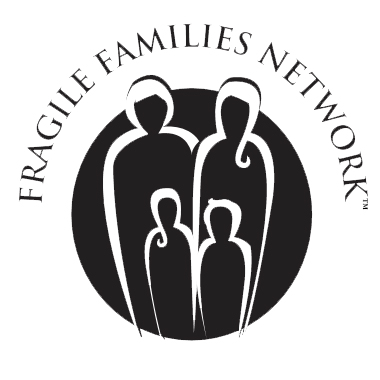Legal Needs of Grandfamily Caregivers: Navigating the Complexities

Across the United States, grandfamily caregivers face numerous legal challenges and uncertainties when taking on the responsibility of raising their relatives’ children. To ensure they can provide stable and nurturing environments, it’s crucial for these caregivers to understand and address their legal needs. Below are key categories of legal questions grandfamily caregivers need to ask, why these questions are important, and a comprehensive list of the questions themselves.
1. Legal Custody and Guardianship
Understanding legal custody and guardianship is essential for establishing a stable and secure living arrangement for the child. This legal status allows caregivers to make important decisions about the child’s upbringing, education, and healthcare.
Questions:
- What is the difference between legal custody and guardianship?
- How do I obtain legal custody or guardianship of my grandchild?
- What are the legal implications of becoming a guardian?
2. Parental Rights
Clarifying the status of parental rights helps avoid future legal conflicts and uncertainties. Knowing whether biological parents can reclaim custody is crucial for long-term planning and understanding the permanency of the caregiving role.
Questions:
- How do I navigate the termination of the biological parents’ rights if necessary?
- Can the biological parents regain custody in the future?
- What rights do I have if the biological parents want to be involved in the child’s life?
3. Financial Assistance
Financial strain is a common issue for grandfamily caregivers. Understanding eligibility for financial assistance can provide much-needed relief and ensure that caregivers can meet the child’s needs without compromising their financial stability.
Questions:
- Am I eligible for financial assistance, such as foster care payments or kinship care subsidies?
- How do I apply for financial support programs for kinship caregivers?
- What other financial resources are available to help me raise my grandchild?
4. Healthcare and Education
Ensuring that the child receives adequate healthcare and educational opportunities is a top priority. Knowing their rights and responsibilities regarding medical decisions and school enrollment helps caregivers provide comprehensive care and address any special needs the child might have.
Questions:
- How can I ensure my grandchild receives proper medical care and is covered by health insurance?
- What are my rights regarding making medical decisions for my grandchild?
- How do I enroll my grandchild in school, and what educational resources are available?
5. Legal Process and Documentation
The legal process for establishing guardianship or custody involves various steps and documentation. Clear guidance is necessary to navigate this process efficiently and avoid delays, ensuring the child’s legal protection and stability.
Questions:
- What documentation is required to establish legal guardianship or custody?
- How long does the legal process take, and what steps are involved?
- Are there specific forms or paperwork I need to complete?
6. Support Services and Resources
Access to support services, such as counseling, respite care, and peer support groups, is crucial for the well-being of both caregivers and children. These resources can provide emotional support, practical advice, and respite, helping caregivers manage the demands of their role more effectively.
Questions:
- What support services are available for kinship caregivers, such as counseling or respite care?
- Are there local or national organizations that provide assistance to grandfamily caregivers?
- How can I connect with other grandfamily caregivers for support and advice?
7. Housing and Living Arrangements
Caregivers may need to modify their living arrangements to meet the requirements for kinship care. Understanding housing assistance programs and necessary home modifications ensures that caregivers can provide a safe and suitable environment for the child, which is often a condition for formal guardianship or custody.
Questions:
- Are there housing assistance programs for kinship caregivers?
- What are the requirements for my living arrangements to qualify for formal kinship care?
- How do I address any home modifications that may be required?
8. Legal Representation and Advocacy
Legal representation can significantly impact the outcome of custody or guardianship cases. Knowing how to find and work with a lawyer who specializes in kinship care can help caregivers navigate the legal system more effectively, ensuring their rights and the child’s best interests are protected.
Questions:
- Do I need a lawyer to help me through the guardianship or custody process?
- How can I find a lawyer who specializes in kinship care issues?
- What should I expect from legal representation in terms of costs and services?
Keeping Legal Information Safe
It’s essential for grandfamily caregivers to keep legal information and answers to their questions in a safe and accessible place. Here are some suggestions:
- Physical Storage: Use a dedicated binder or folder to organize and store all important documents, including custody agreements, financial assistance applications, healthcare records, and legal correspondence.
- Digital Storage: Scan and save documents on a secure cloud storage service, such as Google Drive, Dropbox, or a dedicated legal document management system. Ensure files are organized in clearly labeled folders.
- Access: Share access to these documents with trusted family members or legal advisors to ensure they are available in case of an emergency.
Sources for Further Reading
- Child Welfare Information Gateway. (n.d.). Kinship Care. Retrieved from Child Welfare Information Gateway
- Generations United. (2017). State of Grandfamilies Report. Retrieved from Generations United
- Annie E. Casey Foundation. (2012). Stepping Up for Kids: What Government and Communities Should Do to Support Kinship Families. Retrieved from Annie E. Casey Foundation
- American Bar Association. (n.d.). Kinship Care Legal Handbook. Retrieved from ABA
- AARP. (2020). Grandfamilies Guide. Retrieved from AARP
By addressing these legal needs and ensuring that grandfamily caregivers have access to the necessary resources and support, we can create a more stable and supportive environment for the children in their care.
©2024 Fragile Families NETWORK







